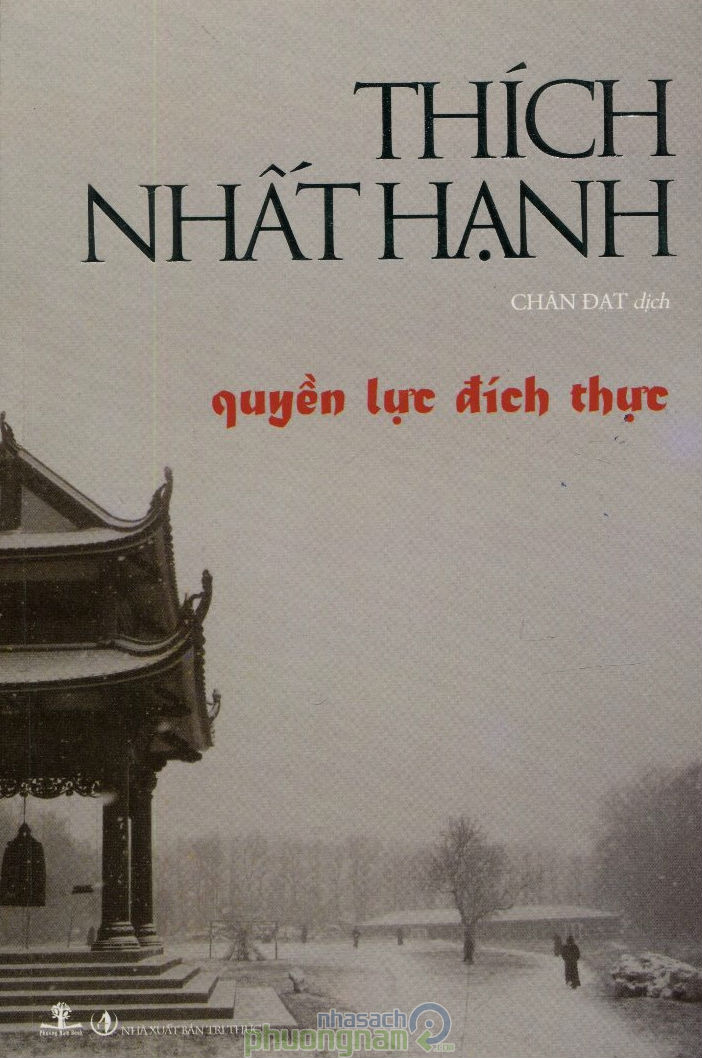What do you think?
Rate this book


Tất cả chúng ta ai cũng muốn có quyền lực và thành công. Nhưng nếu vì cố sức tranh đấu để có được quyền lực, rồi lại cố sức tranh đấu để bảo vệ quyền lực mà bị hao mòn, mệt mỏi, bị chia cách tình nghĩa thì đâu còn có thể vui hưởng quyền lực và thành công? Quyền lực và thành công như vậy thật chẳng có ý nghĩa gì. Sống một cuộc sống sâu sắc và hạnh phúc, có thì giờ chăm sóc người thương là một thành công khác, một quyền lực khác, một thứ thành công và quyền lực quan trọng hơn nhiều. Chỉ có một thành công đáng kể là thành công khi chuyển hoá tự thân, vượt thắng phiền não, sợ hãi và sân hận. Đây là thứ thành công, thứ quyền lực đem lợi lạc cho chính ta và cho những người khác mà không gây ra một tác hại nào.
Tập sách này sẽ cống hiến những thực tập đơn giản, thiết thực và hữu hiệu để tạo một thứ quyền lực đích thực, đó là tự do, an ninh và hạnh phúc mà tất cả chúng ta đều mong muốn, nơi đây, ngay bây giờ, cho chính chúng ta, cho gia đình, cộng đồng, xã hội và cho cả hành tinh.
262 pages, Paperback
Published February 1, 2013

THE FIVE SPIRITUAL POWERS
The Power of Faith
The Power of Diligence
The Power of Mindfulness
The Power of Concentration
The Power of Insight
"There are four aspects of diligence. The first is that when negative emotions haven’t manifested in your mind, you don’t give them a chance to manifest. In Buddhist psychology, we describe our consciousness as having two layers, two levels. The lower layer is called store consciousness, and the upper layer is called mind consciousness. Mind consciousness is our normal, waking mind; store consciousness is our unconscious mind."
"When you read an article full of violence or watch a violent television program or film, you turn on the seed of violence. The first step of diligence is not to turn on these negative seeds and not to allow the environment to turn them on. Diligence here means the practice of selective watering. So if negative seeds in store consciousness haven’t manifested, keep them down there, don’t let them get watered. In your daily life, be careful not to give these seeds a chance to manifest. Don’t suppress them; just don’t give them a chance. In your community, in your family, expose yourself only to sounds and sights that will help you touch the wholesome elements within you. Try not to expose yourself to sights and sounds that stimulate the seed of craving or the seed of anger in you.
You need diligence to practice this, and you may need a community or group of friends with similar values to help you create a good environment. You can encourage your partner, your children, and your friends to help you protect yourself. And you can also protect them by creating an environment
where they don’t have to be in touch with things that water their negative seeds..."
"The Buddha told the story of a merchant, a widower, who went away on a business trip and left his little boy at home.
While he was away, bandits came and burned down the whole village. When the merchant returned, he didn’t find his house; it was just a heap of ash. There was the charred body of a child close by. He threw himself on the ground and cried and cried. He beat his chest and pulled his hair.
The next day, he had the little body cremated. Because his beloved son was his only reason for existence, he sewed a beautiful little velvet bag and put the ashes inside. Wherever he went, he took that bag of ashes with him.
Eating, sleeping, working, he always carried it with him. In fact, his son had been kidnapped by the bandits; three months later, the boy escaped and returned home. When he arrived, it was two o’clock in the morning. He knocked on the door of the new house his father had built. The poor father was lying on his bed crying, holding the bag of ashes, and he asked, “Who is there?” “It’s me, Daddy, your son.”
The father answered, “That’s not possible. My son is dead. I’ve cremated his body and I carry his ashes with me. You must be some naughty boy who’s trying to fool me. Go away, don’t disturb me!” He refused to open the door, and there was no way for the little boy to come in. The boy had to go away, and the father lost his son forever..."